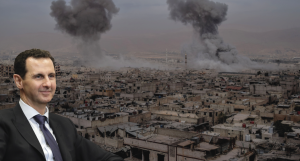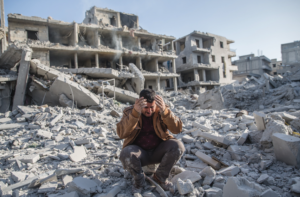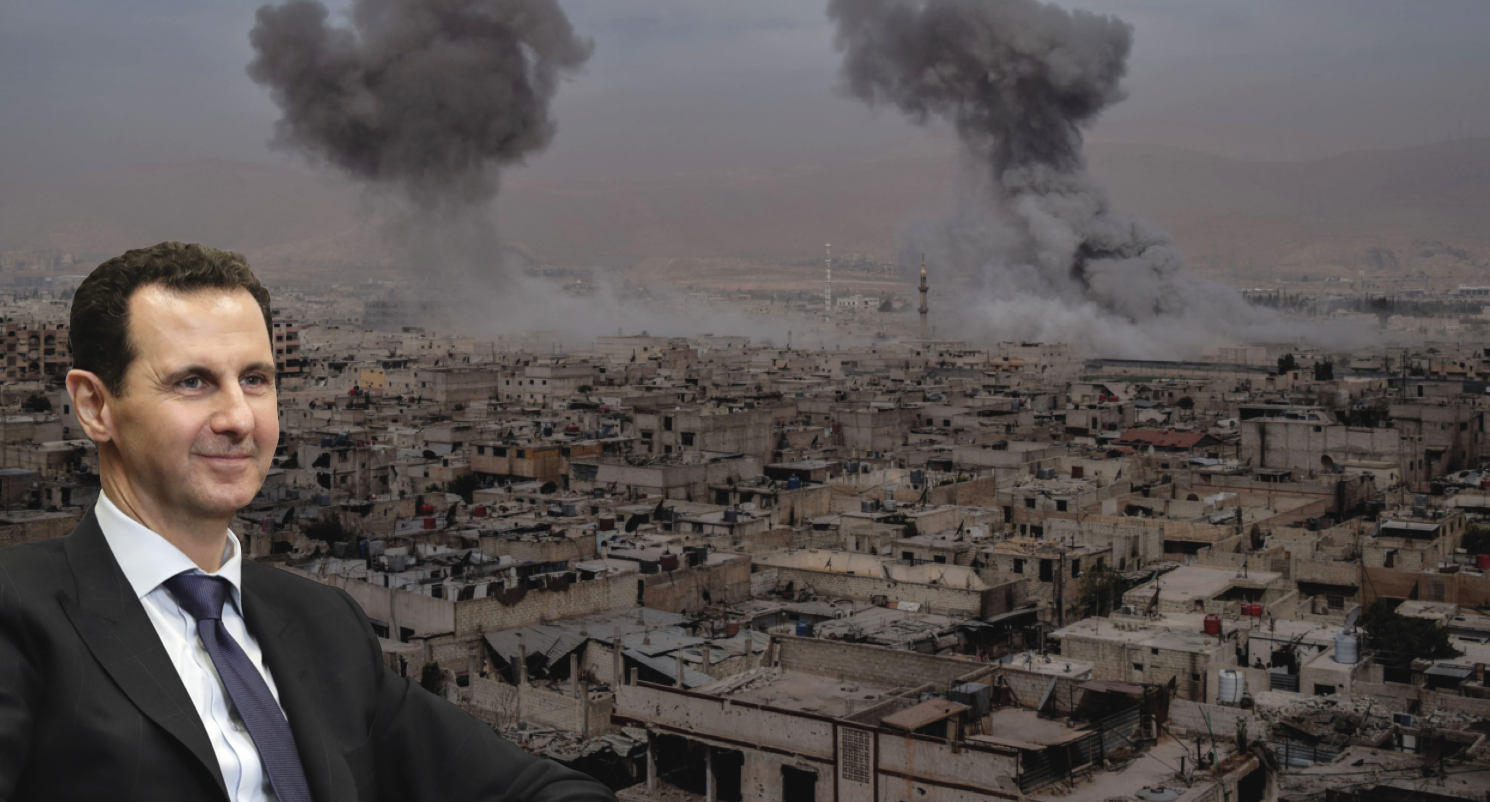After seven years of civil war and the imminent conquest of the last rebel stronghold of Idlib, the Assad regime in Syria is on the verge of final victory. A political solution with the old ruler seems inevitable – but in large parts of the world, Bashar al-Assad will remain isolated as a war criminal.
Around 400,000 deaths, twelve million displaced people and many cities in ruins – the outcome of the Syrian civil war is fatal, but the fighting has not changed the political balance of power. On the contrary, the imbalance in the country seems greater than ever before and Bashar al-Assad continues to rule with a heavy hand. He has been building what Syrians refer to as the “wall of fear” for years and Assad is trying to keep his flock in check with a lot of pressure and the threat of the harshest consequences. Fear as an instrument for maintaining power has a long tradition in Syria and was already used to good effect by Bashar al-Assad’s father, Hafiz. The repressive security apparatus, above all the mukhabarat (secret services), will continue to keep the “shrunken Syria” calm and prevent a broad-based opposition movement in the coming generation.

Even if probably half of all Syrians accept Assad’s rule, those parts of the armed opposition that are neither defeated nor included in a political solution will nevertheless regroup and attempt to torpedo the stabilization processes in the country through attacks. This development can already be seen to a certain extent in Idlib, Deraa and other parts of Syria. The regime’s war against parts of its own population has also encouraged the emergence of a “cannibalistic economy”, according to the logic of which the winner of the war becomes the “owner” of the country. Looting – tafeesh – in all conceivable forms became a central element of the Syrian economy. In areas conquered by the Syrian army or by rebel groups, soldiers and militias looted private homes, businesses, factories and hospitals. The new Syria is therefore not only smaller than before, but also more sectarian and authoritarian. According to Assad, however, the fighting has also had its good side: the country has “lost the best young men”, says the ruler, “but in return a healthier and more homogeneous society has been created.” In his view, this homogeneity should be the basis for the future Syria, with national unity in faith, ideology and tradition. All the cities recaptured from the regime now belong to Syria’s victorious minorities, namely Alawites, Shiites and Christians. Sunni residents require security clearance to return to their homes, which is only granted in small numbers. Assad also broke with his political tradition of awarding high political offices to Sunnis for the first time. For example, the office of speaker of parliament, which had previously been held by Sunnis, was given to a Christian and that of defense minister to an Alawite. One problem for Syria is the enormous destruction of recent years. The UN estimates the cost of reconstruction at more than 200 billion euros, a sum that cannot be provided by Assad’s allies, Russia and Iran, which is under sanctions. And investments from China, India and other countries are not sufficient for comprehensive reconstruction. The EU and the Gulf States could step in as potential donors, but both are skeptical of the Assad regime. The lack of trust in a future Assad-led government means that the major investments required for economic and infrastructural reconstruction are a long way off. Nevertheless, the regime has already set the initial framework conditions for reconstruction in recent months, with supporters of the regime being favored and those who wanted to overthrow it being punished or permanently expelled.

In addition to reconstruction, Assad’s stay in power is also having a negative impact on the return of refugees – a particularly critical issue for Syria’s neighboring states, which are on the edge of their resilience. Around half of the Syrian population has been displaced by the war, with more than five million of them seeking refuge abroad. Many fled attacks by the Syrian armed forces and no longer have houses or apartments to return to. Other refugees fear imprisonment, mistreatment or forced recruitment by the regime. Decree number 10, issued in spring, legitimizes the confiscation of assets by the government. The fear of persecution is also confirmed by a list published on the internet with the names of 1.5 million people, most of whom live abroad, who are currently being sought by security authorities. The Syrians who have fled are already describing themselves as the “new Palestinians” who will be excluded from their homeland for the rest of their lives. Even though the Assad regime has taken control of much of Syria’s territory, foreign powers – such as Turkey, the US and France – continue to dominate border areas, blocking trade corridors and the regime’s access to oil fields. Even in areas nominally under regime control, Russia, Iran, Hezbollah and local militias empowered by the war often exercise greater control than the Syrian state. The bottom line is that all these developments indicate that Assad will rule a puppet state in the future. On paper, the president may emerge victorious from the seven-year war, but he remains isolated in large parts of the world as a war criminal who will have to build the new Syria on the basis of a fragmented society and a weak state that will be under the influence of foreign powers in the long term. The prediction of the former envoy of the Arab League and the United Nations, Lakhdar Brahimi, thus seems to be coming true. He said years ago that the Syrian civil war would end with the “Somalization” of Syria.
Please also read the commentary “Setting the course beyond Syria” by IFK Head Brigadier General Walter Feichtinger.










